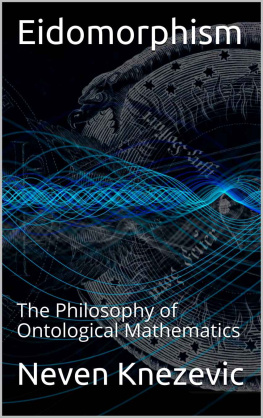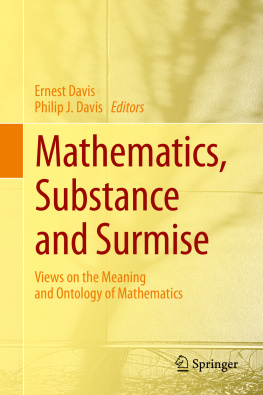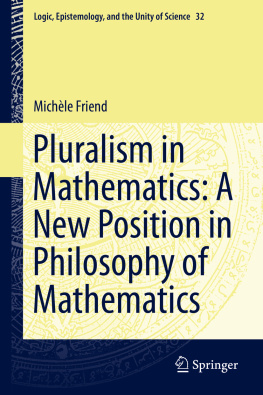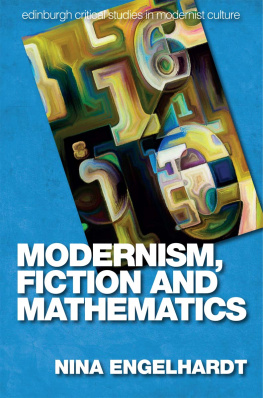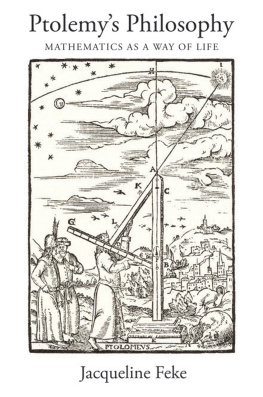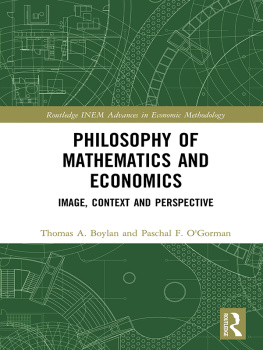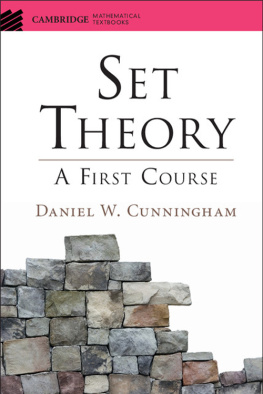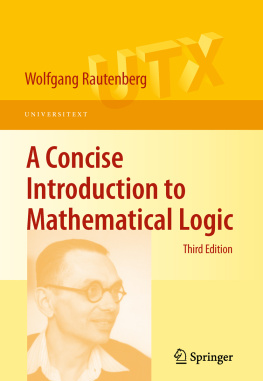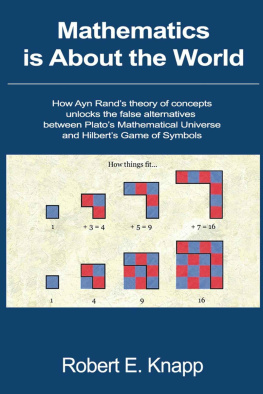
Chihara, Charles S. Professor of Philosophy, University of California, Berkeley
Constructibility and Mathematical Existence
Publication date 1991 (this edition)
Print ISBN-10: 0-19-823975-0
Print ISBN-13: 978-0-19-823975-8
doi:10.1093/0198239750.001.0001
Abstract: A continuation of the study of mathematical existence begun in Ontology and the Vicious-Circle Principle (published in 1973); in the present work, Quine's indispensability argument is rebutted by the development of a new nominalistic version of mathematics (the Constructibility Theory) that is specified as an axiomatized theory formalized in a many-sorted first-order language. What is new in the present work is its abandonment of the predicative restrictions of the earlier work and its much greater attention to the applications of mathematics in science and everyday life. The book also contains detailed discussions of rival views (Mathematical Structuralism, Field's Instrumentalism, Burgess's Moderate Realism, Maddy's Set Theoretical Realism, and Kitcher's Ideal Agent account of mathematics), in which many comparisons with the Constructibility Theory are made.
Keywords: John Burgess,Chihara,Constructibility Theory,Hartry Field,Ideal Agent,indispensability argument,Instrumentalism,Philip Kitcher,Penelope Maddy,mathematical existence,Mathematical Structuralism,Moderate Realism,nominalism,philosophy of mathematics,Quine,Set Theoretical Realism,Stewart Shapiro
Constructibility and Mathematical Existence
end p.i
end p.ii
Constructibility and Mathematical Existence
CLARENDON PRESS OXFORD
end p.iii

Great Clarendon Street, Oxford ox2 6dp
Oxford University Press is a department of the University of Oxford
It furthers the University's objective of excellence in research, scholarship,
and education by publishing worldwide in
Oxford New York
Auckland Bangkok Buenos Aires Cape Town Chennai
Dar es Salaam Delhi Hong Kong Istanbul Karachi Kolkata
Kuala Lumpur Madrid Melbourne Mexico City Mumbai Nairobi
So Paulo Shanghai Taipei Tokyo Toronto
Oxford is a registered trade mark of Oxford University Press
in the UK and in certain other countries
Published in the United States by
Oxford University Press Inc., New York
Charles S. Chihara 1990
The moral rights of the authors have been asserted
Database right Oxford University Press (maker)
All rights reserved. No part of this publication may be reproduced,
stored in a retrieval system, or transmitted, in any form or by any means,
without the prior permission in writing of Oxford University Press,
or as expressly permitted by law, or under terms agreed with the appropriate
reprographics rights organization. Enquiries concerning reproduction
outside the scope of the above should be sent to the Rights Department,
Oxford University Press, at the address above
You must not circulate this book in any other binding or cover
and you must impose this same condition on any acquirer
ISBN 0-19-823975-0
end p.iv
For
Michelle, ma belle,
qui trouve les mots qui vont trs bien ensemble.
A philosophical problem is a call to provide an adequate explanation in terms of an acceptable basis. If we are ready to tolerate everything as understood, there is nothing left to explain; while if we sourly refuse to take anything, even tentatively, as clear, no explanation can be given.
Nelson Goodman, Fact, Fiction, and Forecast
end p.v
end p.vi
Preface
This work is concerned with mathematical existence, a topic to which I have devoted a great deal of thought over many years. It might be regarded as a continuation of the study of mathematical existence found in my Ontology and the Vicious-Circle Principle; however, the predicative standpoint of that work has been abandoned in the present one. Why? The earlier position was developed when Quine's influence was especially strong. At that time, the free-wheeling use of modal notions seemed so fraught with problems that I restricted my modal mathematical developments to very limited constructionshence the predicative approach. Quine's extensionalist views no longer hold such sway: few philosophers today believe that "true logic" should be restricted to first-order extensional logic. The person most responsible, I believe, for this shift in philosophical trends is Saul Kripke. His logical and philosophical writings on modality have led the way to a renewed interest in modal logic and to an invigorated use of modal notions in philosophical theorizing. The resurgence of research on modal reasoning came at an appropriate time for the development of the theory of constructibility that I was attempting to construct (see my (Simple) for an earlier version): it provided me with another basis for explicating, clarifying, and justifying some of the fundamental ideas of the theory.
This book has not been written only for researchers and scholars in the area of philosophy of mathematics. Those who are comfortable working with logical and mathematical concepts should find no difficulty in starting this book at the beginning and reading it straight through to the end; but others, especially those with only a general philosophical background, may find it preferable to proceed directly to Part .
Serious writing of this book began in Paris in the fall of 1985. A sabbatical leave from the University of California and a National Endowment for the Humanities fellowship enabled me to devote the academic year to this project. Early versions of some of the chapters
end p.vii
in this book were presented to scholarly groups at various times during that year. These include: the Conference on Scientific and Philosophical Controversy held at the Universidade de vora in December 1985; the Logic Seminar held at L'Universit Ren Descartes in January and April 1986; the Philosophy Seminar of the Universitt des Saarlandes; and the Seminar of Philosophy and Mathematics held at the cole Normale Suprieure in April 1986. The material I had written during this leave was then presented and discussed in a graduate seminar I gave in the fall of 1986; this enabled me to sharpen the ideas, to eliminate many unclarities and mistakes, and to develop the anti-Platonic position of the book. Another seminar, given in the fall of 1987, was devoted to some of the material of Part . More recently, I have used material from this work in presentations I have given at the Philosophy Colloquium of the University of Washington, at a meeting of the Pacific Division of the American Philosophical Association, and at the Logic Colloquium of the University of California, Berkeley. The suggestions and criticisms I received from those who attended the above-mentioned presentations and seminars were very helpful to me.
Since the use of quotation marks in logical studies can be quite confusing to the uninitiated, a brief explanation of how quotation marks are used in this work may be in order. Double quotation marks are used for direct quotation and as "scare quotes" (i.e. as indicators that the expression appearing between the quotation marks, although accepted by certain people or groups, is not endorsedor whole-heartedly endorsedby the writer). Single quotation marks are used to refer to linguistic items (sentences, words, symbols, and the like): when a pair of single quotation marks is used, it is the linguistic item enclosed with the quotation marks that is being talked about. I also make use of the convention of displaying linguistic items in order to refer to them. For example, one can refer to the question 'Does Lois call Clark 'Clark'?' by displaying it, as it is done below:


